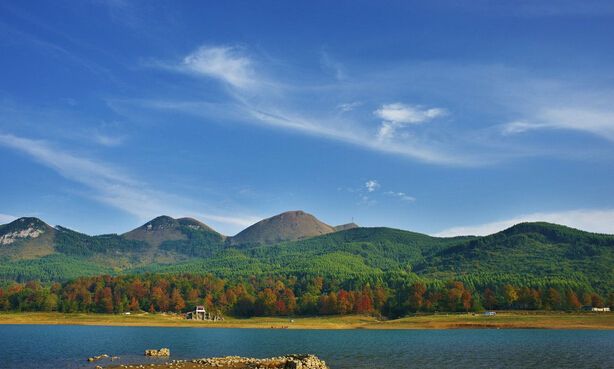But the artists focused on what is working on the light, on the human potential and paved the way the Renaissance. It all started with arts.
但画家专注于一束光这个好现象上,专注在人的潜力上,为文艺复兴奠定基础,一切从艺术开始
Or in 18th and 19th century, Romantics.
又如在18、19世纪,浪漫主义
Beethoven or Victor Hugo. They encountered a harsh reality.
贝多芬或雨果,他们都遭遇很悲惨的困境
But they focused also on heroic, on the great, on the human potential.
但他们专注于崇高伟大的事业上,专注于人的潜力上
Aristotle once said, that "fiction is more important than history."
亚里士多德曾经说过,"小说比历史更重要"
Because history depicts life as it is, where the fiction depicts life as it can or ought to be. As it can or ought to be.
因为历史只是一五一十地描述生活,而小说则是描述对生活的憧憬。对生活的憧憬
The human potential. And that paved the way to much higher levels of freedom and equality in the world. Or 1930s' America.
人的潜力。这为世界上更高层次的自由和平等奠定了基础,又如上世纪30年代的美国

In many ways the heyday of Hollywood were directors like Cukor, Capra, Sturges,
很大程度上,好莱坞鼎盛时期的导演丘克、卡普拉、斯特奇斯
created masterworks during a time when there was Great Depression.
正是在大萧条时期拍出他们的代表作
And people used to go to the cinema and watched these films to inspire them and helped them get through
人们会去电影院看这些电影,鼓励他们,帮助他们度过
the difficult time — it was also between the two, you know, the Great War and the WWII. Difficult time in the world.
困难时期,这段时期同时也正好是一战和二战中间,全世界都陷入困境
World recovering and then plunging into another war.
正在复原的世界突然又陷入另一场大战
And yet the artists continued to inspire.
但这些艺术家还是不停地鼓励人们
Not ignoring what is not working. Not ignoring, but improving. That, by the way, is my favorite movie, Sullivan's Travels.
他们并非无视问题,而是在改善。这是我最爱的电影《苏利文的旅行》



